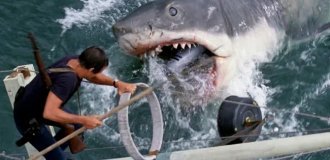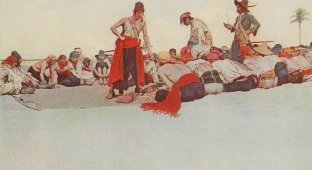Maruning is a terrible pirate punishment that seemed humane, but only at first glance (5 photos)
Pirate ships were in fact a business (sometimes even legal, if privateers plundered the ships of enemy countries with a license to do so) that had to be effectively managed. Therefore, pirate captains needed to maintain discipline and order on a ship full of people who do not get along well with what in advanced civilizations is called “law.” 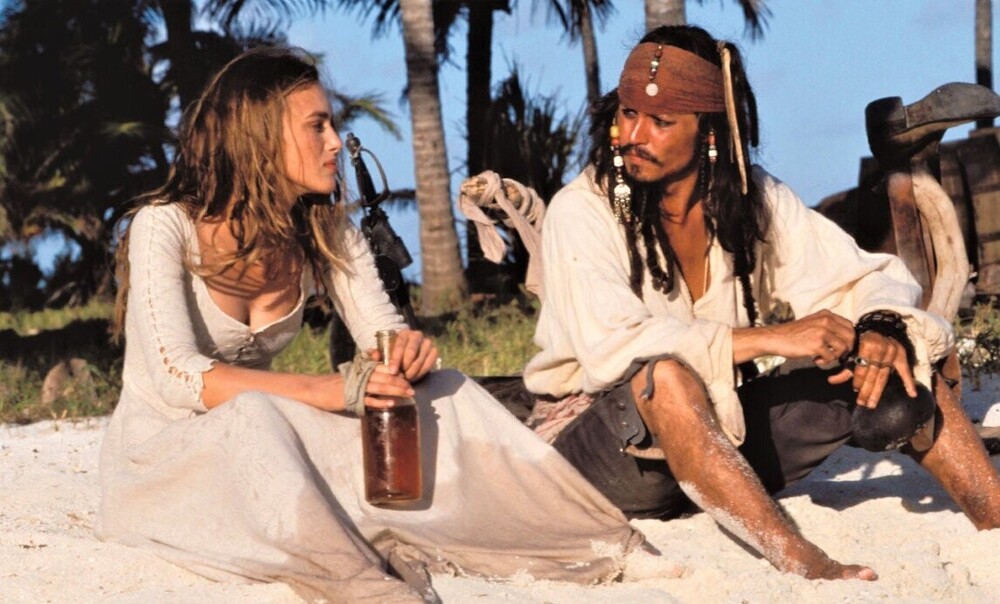
Piracy was a risky, sometimes deadly activity, and strict rules were necessary for the survival of the crew. These "Pirate Laws" covered everything from how much each pirate earned from his booty, to compensation for injuries, punishments, and even what kind of entertainment was allowed on board. These rules collectively became known as the "Pirate Code", which pirates were required to follow.
But if the pirates dealt with their sworn enemies without trial, often dragging them under the keel in the most cruel way, then for breaking the rules among their own, marooning was the punishment.
And although this punishment at first glance might seem quite humane to many people, in fact, the pirates were even more afraid of this punishment than the gallows.
What is "marooning"? 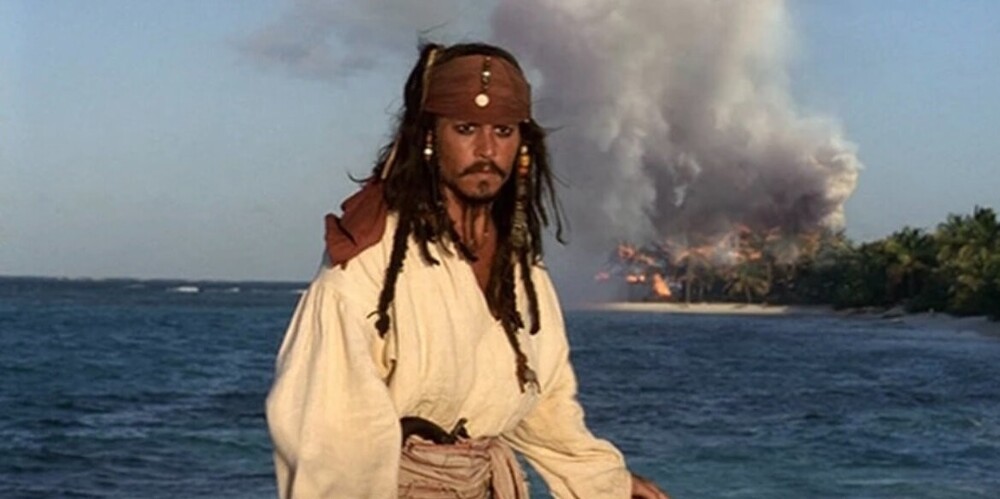
If you watched the movie "Pirates of the Caribbean", then you probably remember the scene where Captain Jack Sparrow was left twice by his own crew on a tiny island with a pistol with only one bullet.
And it turns out that such a punishment for pirates actually existed and this is not a Hollywood fiction, but a real punishment called “marooning”.
The word maruning came from the Spanish word cimarrón to describe a runaway slave, comparable to a feral domestic animal.
The very first mention of the punishment "marooning" can be found in the Pirate Code of the famous Welsh pirate captain Black Bart, written in 1699. In paragraph 2 of this Code it was said that a pirate who violated the laws of the ship would be landed on a desert island, preferably on a sand spit without fresh water and food. He was allowed to take with him all his belongings, a bottle of water for one day and a pistol, but only with one single bullet.
Many may think that such punishment sounds incredibly merciful. After all, if you think a little, you can realize that many pirates were real cutthroats who, without remorse, could kill a traitor in cold blood, throw him overboard, drag him under the keel, etc.
Therefore, marooning was a (relatively) merciful punishment, given the constant reprisals with which pirates usually rewarded their enemies.
However, in reality this punishment provided the unlucky pirate with a terrible and very slow death without hope of salvation. 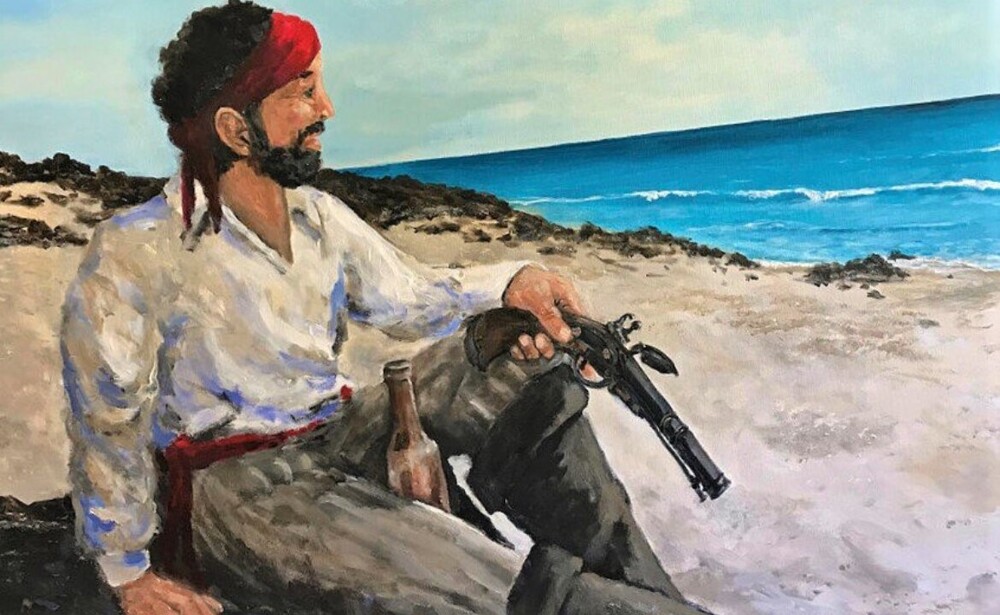
A pirate, deprived of food and water, finding himself on a desert island under the scorching sun, quickly faced hunger and thirst. And gradually, from loneliness and the terrible heat, he slowly went crazy.
Perhaps, if the pirate had chosen to end his ordeal, he could have used a single bullet. But due to the fact that many pirates were believers, such a step would mean damning their soul forever.
Marooning was used not only as a punishment 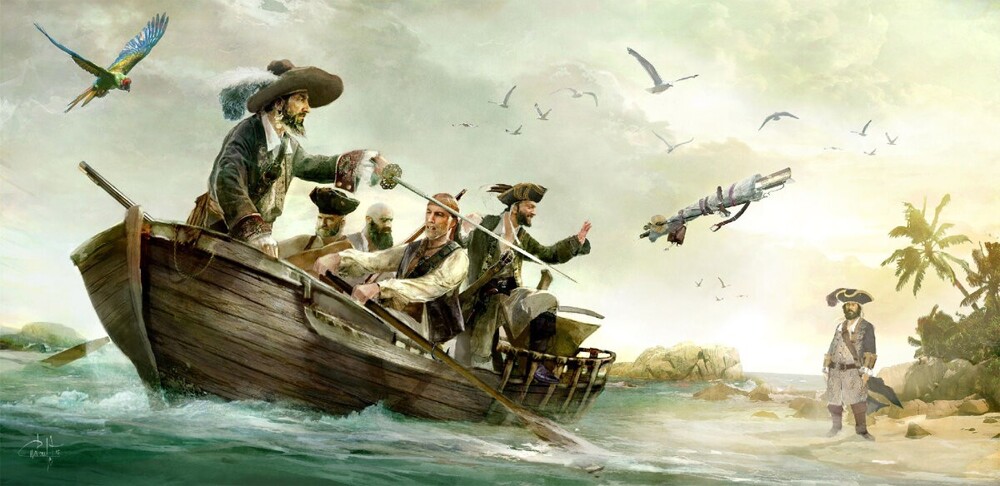
The historical letters of Captains Bartholomew Roberts and John Phillips define the landing as a punishment for deceiving fellow pirates, for theft and treason (mutiny).
Marooning was often used after a mutiny on a ship and a change of captain. From such cases, the famous pirate Jack Rackham easily comes to mind, who secretly assembled a crew, staged a mutiny and overthrew his captain Charles Vane, and then showed respect for him by offering not death, but a landing in the open ocean on several boats. And he even supplied the captain and his loyal people with a week's supply of food.
Something similar happened to the English pirate Edward England. His own crew rebelled and landed him on the island of Mauritius, from which he then tried to escape by constructing a small raft.
And for example, Ned Lowe, one of the most famous cruel pirate captains in history, was considered too crazy by his own crew to get rid of him; got him drunk until he passed out, and then, while Lowe was sleeping, left him drunk on a desert island with a note, a bottle of drinking water and a pistol with one bullet.
GenerallyThis happened very often among pirates.
Did marooning always mean certain death? 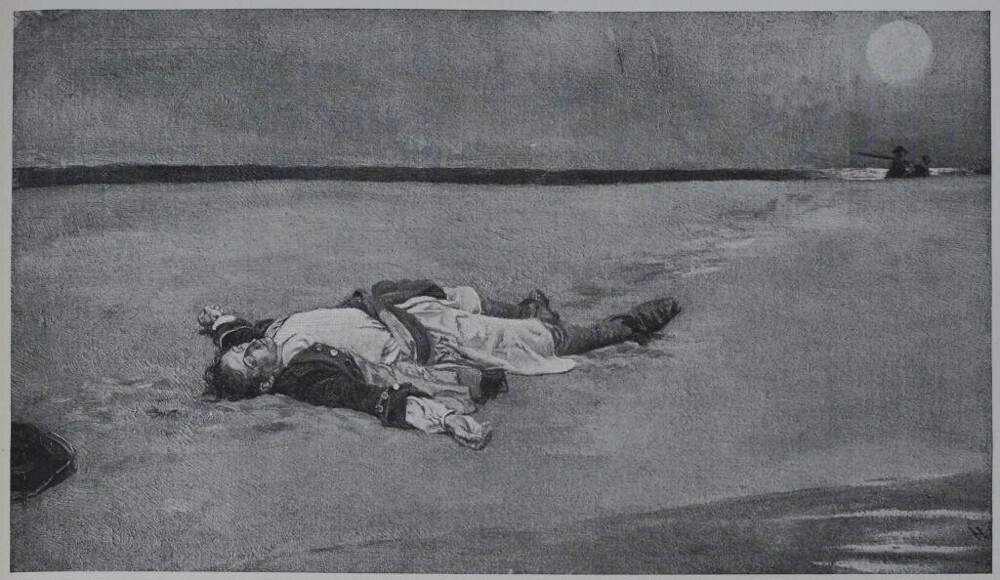
Of course, sometimes miracles happened, and pirates who found themselves on the verge of life and death on a desert island were accidentally noticed by ships passing by the island - sometimes they were “friendly” pirate or merchant ships, but sometimes also military ones.
If a pirate was picked up by his “friends in the shop,” they could invite him to join their crew, considering this person their mascot. They believed that such a lucky person on board would definitely bring great luck.
However, if a pirate from a desert island was picked up by merchant or warships, he was taken to the nearest port without further investigation to determine his identity and subsequent trial. An example of such a fate was Charles Vane and his 15 pirates, whom Jack Rackham landed not on an island, but on sloops in the open ocean. In 1720, Captain Vane and his comrades were picked up by a warship on the open ocean, and then all the pirates were arrested and sent to Port Royal. There, Charles Vane and his crew were charged with piracy and then sentenced to death by hanging.
Of course, it also happened that pirates who found themselves on a large uninhabited island managed to survive by showing dexterity. If this was possible, then the pirate hid under palm trees and managed to catch fish and eat fruit. This, for example, happened to the former pirate Alexander Selkirk, who was rescued from the island of Juan Fernandez in the Pacific Ocean in 1704 by the British.
It is believed that it was Selkirk, after his rescue, who served as the prototype for Robinson Crusoe, a character in the famous book by Daniel Defoe.
However, escaping from a desert island is an exceptional, incredibly rare and happy occasion. After all, 99% of the pirates who found themselves in a similar situation found nothing on the island except their death.



